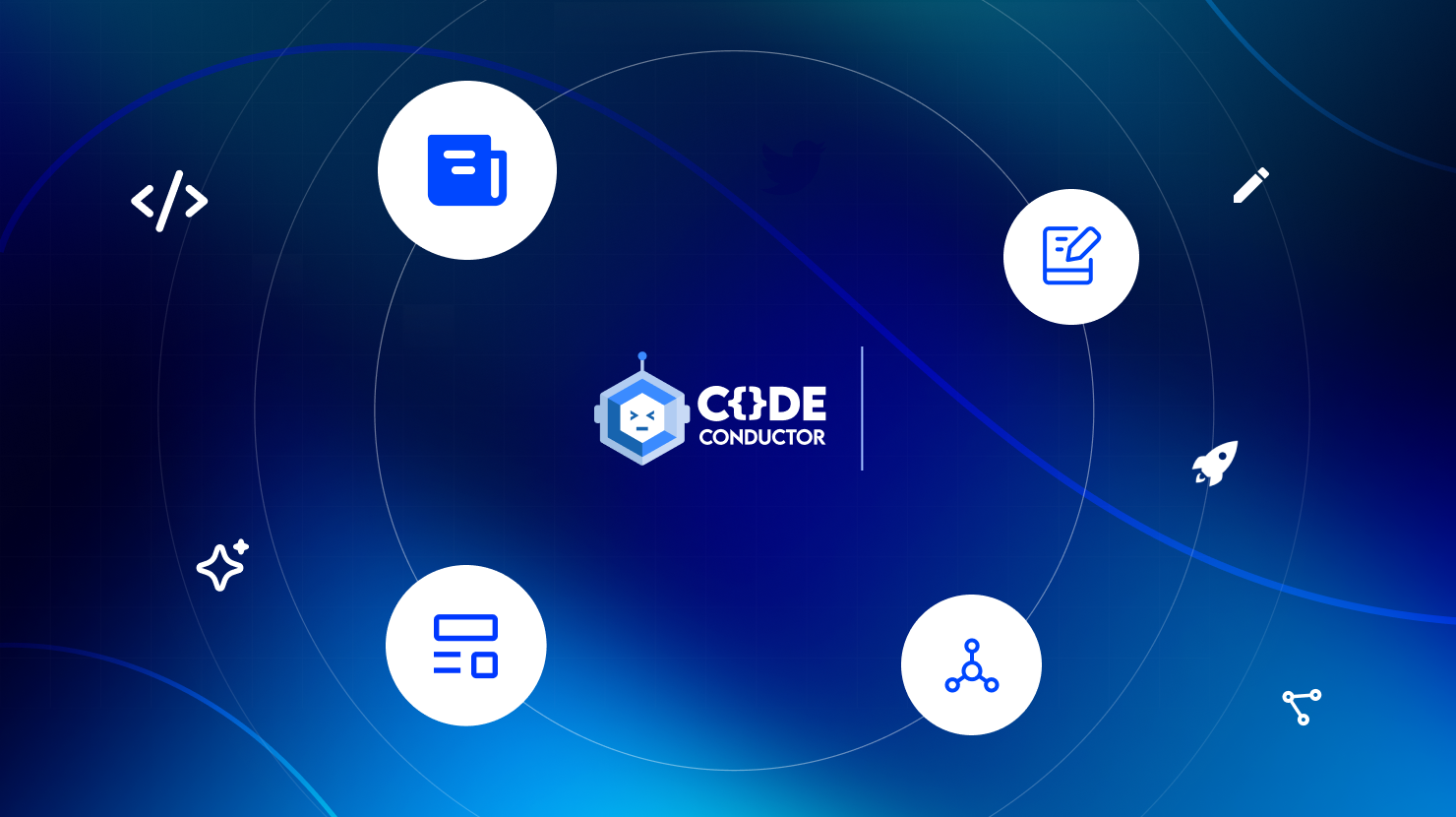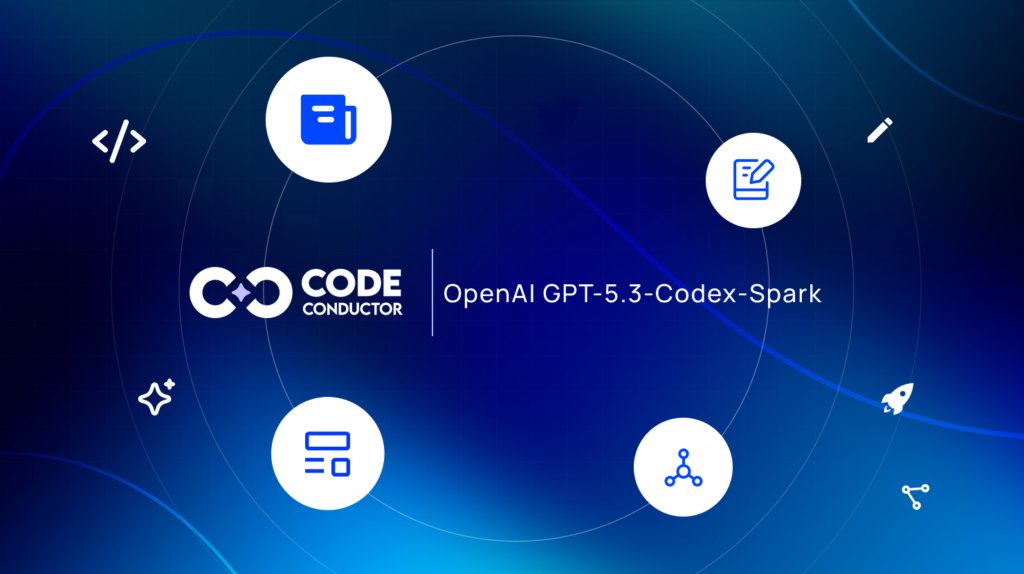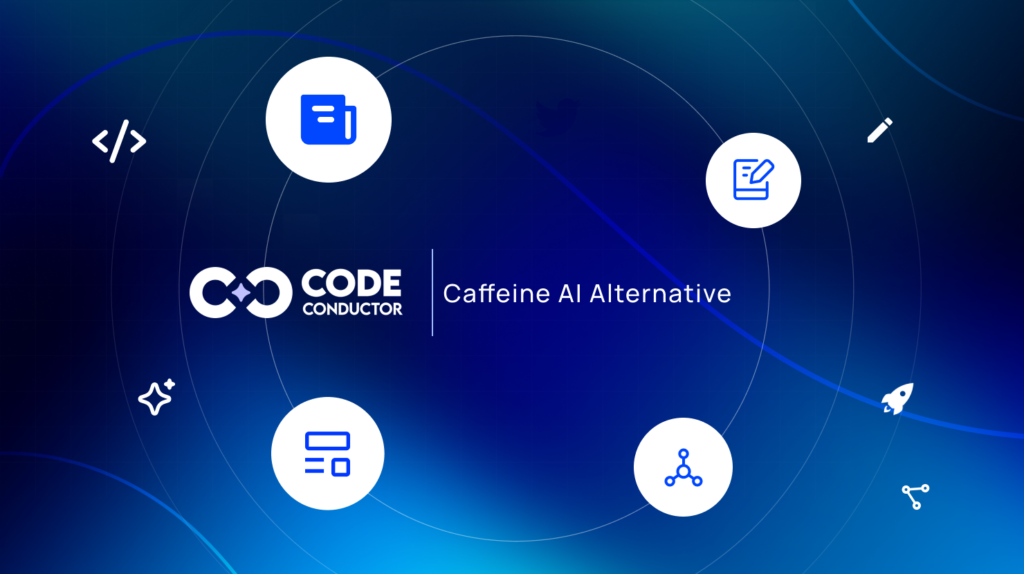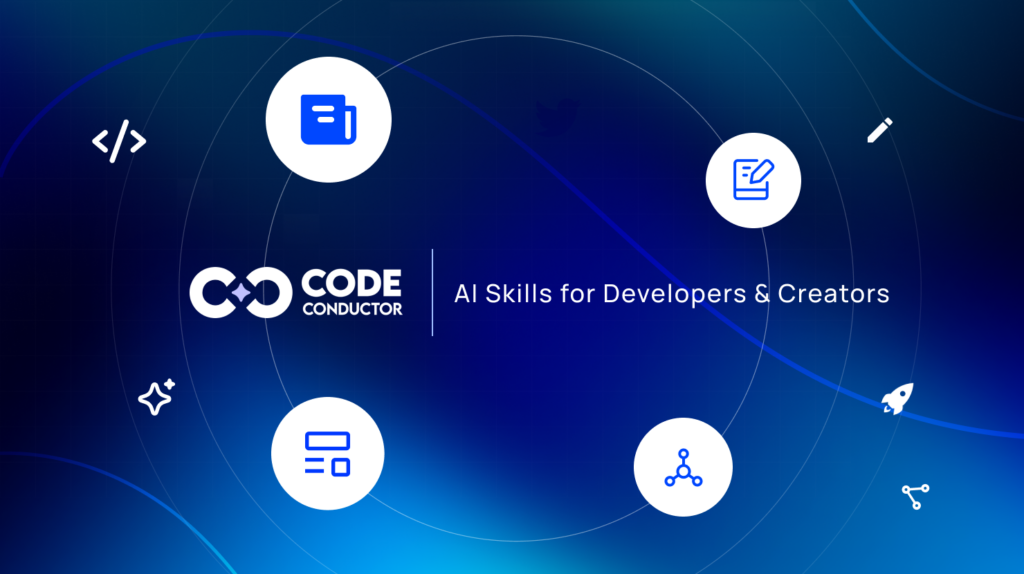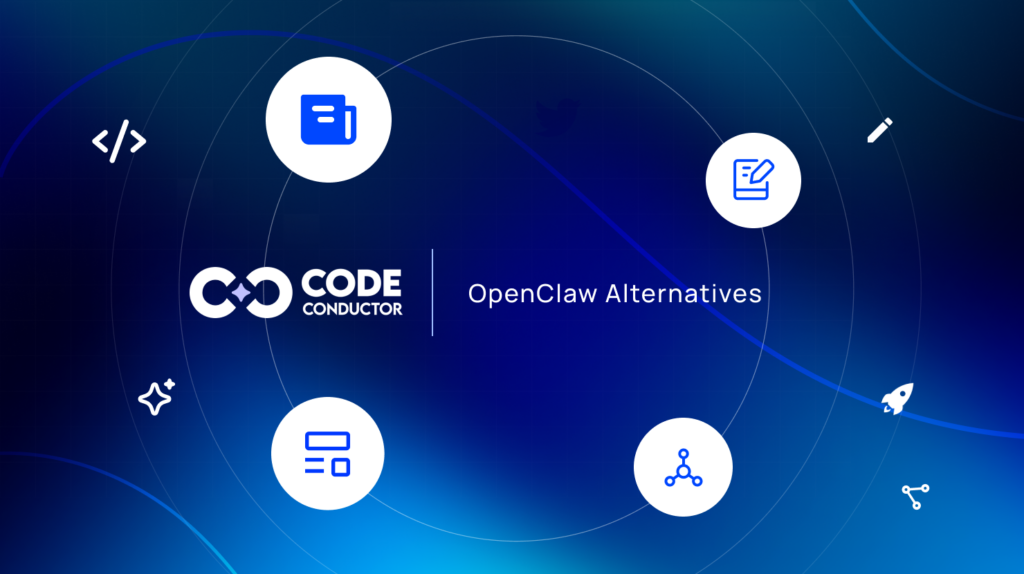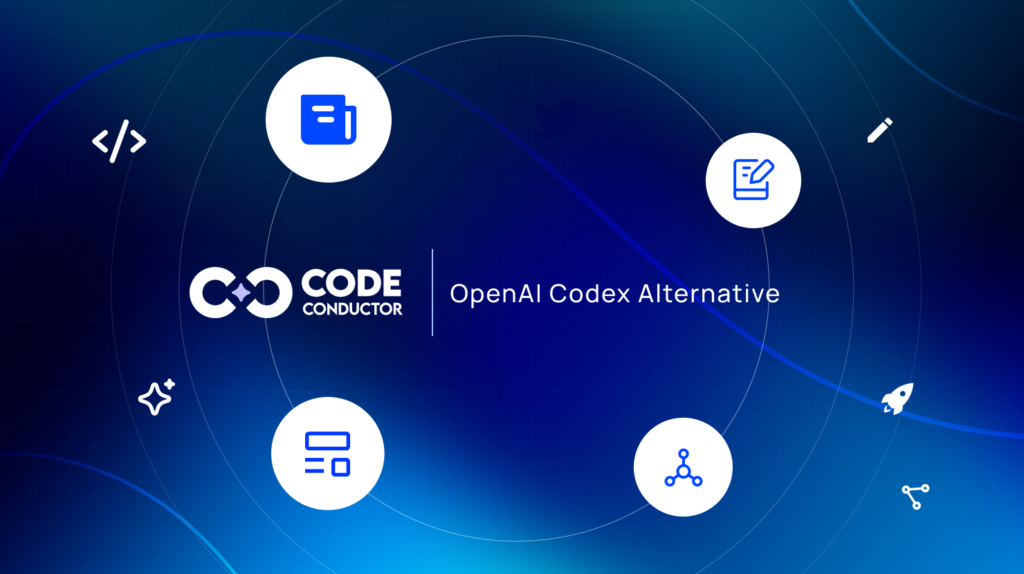AI coding tools promised to change software development forever. With a few prompts, anyone could “vibe code” a working app and skip months of traditional engineering. But the rush to launch has revealed a harder truth: AI-generated code often hides bugs, security gaps, and maintenance headaches. Out of this reality, a new role has emerged: the vibe coding cleanup specialist. These engineers step in to turn flashy demos into reliable, production-ready software. This guide explains how the hype grew, why the problems surfaced, and how platforms like CodeConductor help teams use AI as a co-pilot instead of a risky replacement.
In This Post
- How an AI Coding Experiment Fell Apart
- What Vibe Coding Means for AI Software Development
- The Hidden Problems With AI-Generated Code
- How Developers Became AI Babysitters
- The Rise of Vibe Coding Cleanup Specialists
- Why Companies Pay for AI Code Cleanup
- Best Practices for Teams Using AI Coding Tools
- AI Coding Tools Work Best as a Co-Pilot
- CodeConductor: The Safer Way to Use AI Coding Tools
- The Future of AI-Assisted Software Development
- FAQ: AI-Generated Code and Cleanup Specialists
How an AI Coding Experiment Fell Apart
A solo founder “vibe-coded” a SaaS product over a single weekend using only prompts fed to an AI coding tool. The demo impressed early adopters, and the launch post went viral.
Two weeks later, the excitement turned to chaos. Users bypassed payments, API calls spiked without warning, and mysterious data started appearing in the database. Each time the founder asked the AI to fix a bug, it introduced two more. Eventually, the founder admitted what experienced engineers already knew: you cannot debug what you do not understand.
This story is now common, and it explains why a new profession, the vibe coding cleanup specialist, has emerged. It proves that AI-generated code still needs human oversight.
See More: Builder AI Scandal: How a $1.5 Billion AI Unicorn Fooled the Programming Industry – codeconductor
What Vibe Coding Means for AI Software Development
Vibe coding is the practice of building software almost entirely through AI coding assistants such as GitHub Copilot or Cursor. Instead of writing code, the developer or non-developer describes the app and lets the AI generate the code.
Why AI-Generated Code Became Popular
- Launch a prototype in days instead of months
- Avoid the upfront cost of hiring a full engineering team
- Focus on product design and marketing while the AI handles routine coding
Search interest for AI coding tools, building apps with AI, and AI-generated code problems has risen sharply, showing the appeal of this shortcut.
The Hidden Problems With AI-Generated Code
The speed is real, but so are the risks of AI-generated code.
1. Security Vulnerabilities in AI Code
Independent analyses show that up to 40 percent of AI-generated database queries are vulnerable to SQL injection attacks. AI often places security checks on the client side, where attackers can bypass them. Hard-coded API keys and misconfigured access controls are common.
2. Hallucinated Functions and Phantom Variables
Large language models sometimes invent functions or variables that do not exist. The app may compile and even run during a demo, but these phantom features break when real traffic arrives.
3. Inconsistent Logic and Context Loss
As an application grows, AI assistants often lose track of earlier instructions. The result is duplicated logic, inconsistent naming, and brittle integrations that make maintenance expensive.
The hours saved in initial development can vanish in weeks of debugging and patching. The shortcut quickly becomes a costly detour.
See More: Why 80% AI Projects Fail? Mistakes & Solutions to Succeed
How Developers Became AI Babysitters
Many senior developers describe their new routine as “AI babysitting.”
Instead of creating new features, they spend time:
- reviewing every line of AI-generated code
- refactoring poorly structured sections
- adding documentation and automated tests that the AI skipped
A 2025 survey of nearly 800 developers found that 95 percent spend extra time correcting AI-generated code, with senior engineers carrying most of the load. The productivity boost that AI promised often disappears once teams factor in the cost of review and repair.
See More: Junior Developers in the Age of AI: Future of Entry-Level Software Engineers (2026 Guide)
The Rise of Vibe Coding Cleanup Specialists
This constant firefighting has created a new profession: the vibe coding cleanup specialist.
Key Responsibilities of a Cleanup Specialist
- Audit AI-generated code for bugs and security flaws
- Remove duplicated or unnecessary functions
- Rewrite fragile logic to meet production standards
- Add missing tests and documentation
- Normalise code style so teams can maintain it long term
These engineers are the software janitors who transform flashy AI demos into stable, production-ready applications. Freelance platforms and LinkedIn job boards now carry listings specifically for AI-generated code cleanup.
Why Companies Pay for AI Code Cleanup
Many founders believed AI tools would cut development costs. In reality, unreviewed AI code often proves more expensive:
- Security breaches lead to emergency fixes, potential fines, and reputational damage
- Customer trust erodes when apps fail in production
- Maintenance costs climb because messy code is harder to extend or integrate
Hiring a cleanup specialist may look like an extra expense, but it is far cheaper than a late-night incident response or a public data leak.
Best Practices for Teams Using AI Coding Tools
Whether you are a solo founder or part of a large engineering team, you can avoid many of these pitfalls by treating AI output like the work of an inexperienced junior developer.
Action Steps to Reduce AI-Generated Code Problems
- Review every line before merging. Never trust generated code without human inspection.
- Write automated tests early. Unit and integration tests should run before any AI-generated feature goes live.
- Keep security on the server side. AI often inserts client-side checks that attackers can bypass.
- Document everything. Clear records make future debugging and onboarding much easier.
Following these steps lets you capture the benefits of AI coding tools while avoiding the hidden costs.
AI Coding Tools Work Best as a Co-Pilot
The biggest lesson from the vibe coding boom is that AI coding tools are best used as assistants, not replacements.
How Skilled Developers Get Real Value from AI
- speeding up repetitive tasks
- generating boilerplate code
- suggesting small functions or refactoring ideas
AI cannot replace human judgment on architecture, security, or long-term maintainability. Skilled engineers can prompt the AI precisely and critically evaluate its output. Newcomers who skip learning the basics often freeze when the model invents a phantom state or silently deletes working code, and they lack the skills to repair the damage.
CodeConductor: The Safer Way to Use AI Coding Tools
For teams that want the speed of AI coding tools without the hidden chaos, CodeConductor offers the ideal balance.
Sign up for CodeConductor to clean up vibe-coded apps before they reach production. Instead of hiring specialists for vibe coding cleanup after, build it right the first time. CodeConductor combines the speed of AI with the reliability and maintainability that only experienced engineering practices can guarantee.
See More: Finish Vibe Coded Apps With CodeConductor [2026]
Sign up to CodeConductor – Try it Free
The Future of AI-Assisted Software Development
AI will continue to transform software development. Ten years from now, writing every line of boilerplate code by hand may be as rare as manually managing memory today. But programmers will not disappear.
Human Expertise Remains Essential
Developers will focus on system design, trade-off decisions, and long-term reliability, areas where human judgment is critical.
Companies that pair human expertise with AI assistance, using AI as a co-pilot while keeping developers in control, will ship faster and safer than those chasing a “no engineers required” fantasy.
The rise of vibe coding cleanup specialists proves that while AI can write code, it cannot replace engineering discipline. The smartest teams now treat AI as a co-pilot, not a pilot, and they sign up for CodeConductor to combine AI’s speed with human judgment for software that is both fast to market and safe to run.
FAQ: AI-Generated Code and Cleanup Specialists
Q1. What is a vibe coding cleanup specialist?
A vibe coding cleanup specialist is a developer hired to audit and fix AI-generated code. They remove bugs, strengthen security, refactor messy logic, and add tests so an AI-built prototype can run safely in production.
Q2. What are the most common AI-generated code problems?
Typical issues include hidden security flaws such as SQL injection vulnerabilities, hallucinated functions or variables, and inconsistent naming or logic when the AI loses context in large projects.
Q3. How does CodeConductor help avoid cleanup costs?
CodeConductor acts as an AI co-pilot. It gives teams the speed of AI coding tools while enforcing human-guided workflows, automated checks, and staging environments. This lets you build production-ready apps without paying for expensive post-launch cleanups.
More on Vibe Coding
- Top 7 Vibe Coding Tools for Startups & Enterprises in 2026
- Best Builder.ai Alternative for Building AI-Powered Apps
- Base44 Alternative for Building an AI‑Powered Apps
- Best Cursor Alternative to Build Full Stack Web & Mobile Apps
- Best Windsurf Alternative to Build an AI Web App in Minutes
- Best Builder.ai Alternative for Building AI-Powered Apps
- Best Kiro Alternative to Build AI Apps Using AI Coding Assistant
- Best Bolt Ai Alternative to Build Full Stack Web App Using AI
- Best Lovable Alternative to Build Apps & Website by Using AI
- Replit AI Wiped a Production Database – Why CodeConductor Is a Best Alternative?

Founder CodeConductor

